
Today we’re going to show you the ins and outs of affiliate marketing. This will be a super simple training.
Affiliate Marketing: How it Works
First off, what is affiliate marketing?
Affiliate marketing is where a company sells products and/or services, and it pays an affiliate commission to an advertiser so that he or she can promote these offers as well.
An affiliate commission is also known as a payout.
If there’s a company that you want to be an affiliate of, the company will add you as an affiliate, and it will give you a special tracking link. All you have to do is market this tracking link wherever you want.
You can put it on Facebook, YouTube, send it in an email, pretty much whatever you want to do with it.
This tracking link sends people to the product or the company. And when someone buys the product, you get a commission.
When you sign up for an affiliate network, they usually ask you if you are one of two kinds of people: a publisher or an advertiser.
The advertiser is the one who is advertising their own product. This is where the transactions take place, and where the publisher gets paid. The publisher is someone who publishes things to get traffic. They end up sending customers to the advertiser.
Until you sell your own products, you’re probably going to be a publisher.
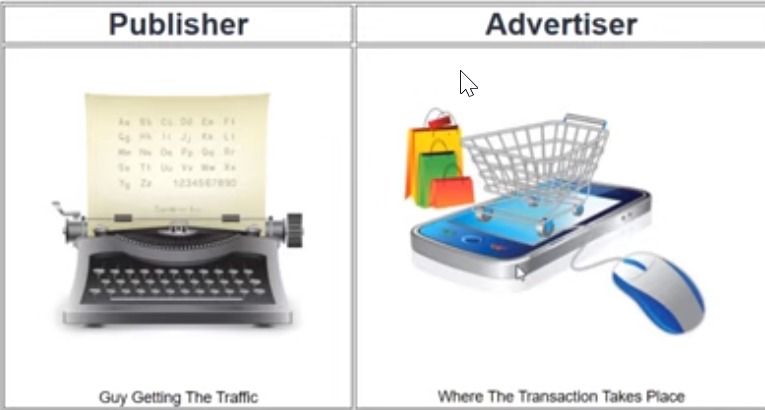
In traditional affiliate marketing, you go directly to a company that sells products, they give you a link for an offer, you promote it, and you get a check from the company.
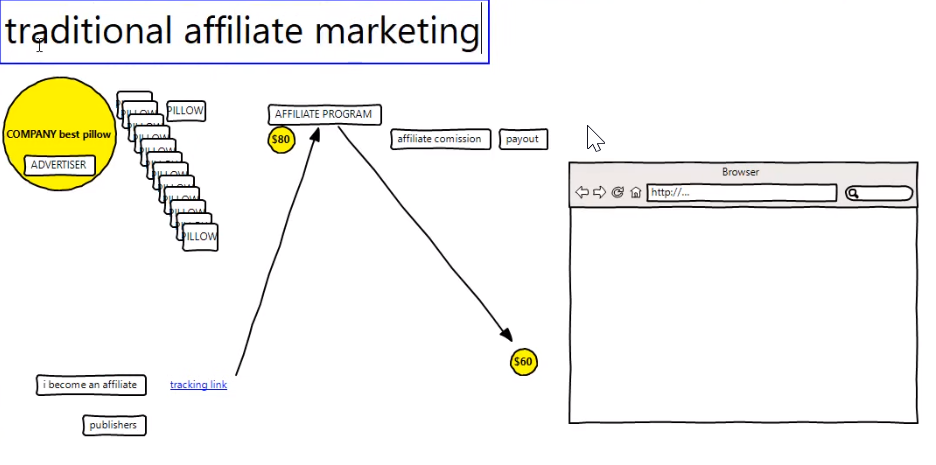
CPA Marketing
There is also something called CPA affiliate marketing, where can get paid to send people to links when they perform a specific action. More specifically, you can get paid when someone performs a CPA, or cost-per-action.
In this case, a company doesn’t have their own affiliate program for you to promote their products. Instead, they join something called a CPA network, which is a place where a bunch of companies go to have their products promoted.
The CPA network has special software and actually makes tracking links for all of the different affiliate offers. If you have an account with one of these networks, you can sign in and see all the links you have in one place.
With this, you get paid by the CPA network, not by the company directly.
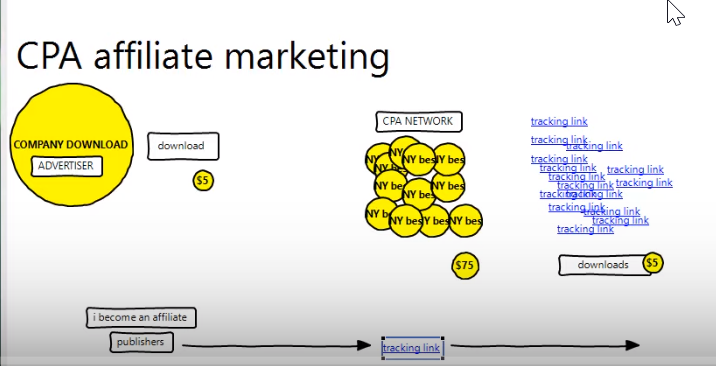
CPA affiliate marketing can be really great, because you don’t even have to get people to buy products in order to make money.
You can get paid lots of different ways with CPA marketing. This could be per click, sale, download, form, call, or something else.
You’ll notice that when affiliate networks give you a custom tracking link, it’s usually big and ugly. I always advise people to cloak their links, which means to run it through a program that allows it to look shorter and easier to read.
When you send someone to a link, it drops what’s called a cookie on the computer. And that computer tracks them, so that whenever the click, sale, download, form, or whatever action happens that is needed, the cookie will be triggered.
Then, the affiliate company will know that the action came from your own personal link.
Follow the Rules
When you’re doing this, you always want to follow the directions, and follow the terms and conditions.
If you don’t follow the terms and conditions, you probably won’t get paid. And not getting paid sucks.
No matter where you go to get offers that you’re promoting, each offer will have certain traffic types that are allowed. Here are some examples of possible traffic types:
- Email
- Contextual
- Display
- Search
- Incentives
- Social
- Native
- Mobile ads
But you’ll see that not all of these may be allowed, or perhaps there are others allowed that aren’t on this list. But this gives you an idea.
Make sure to pay attention to what is allowed for the offer.
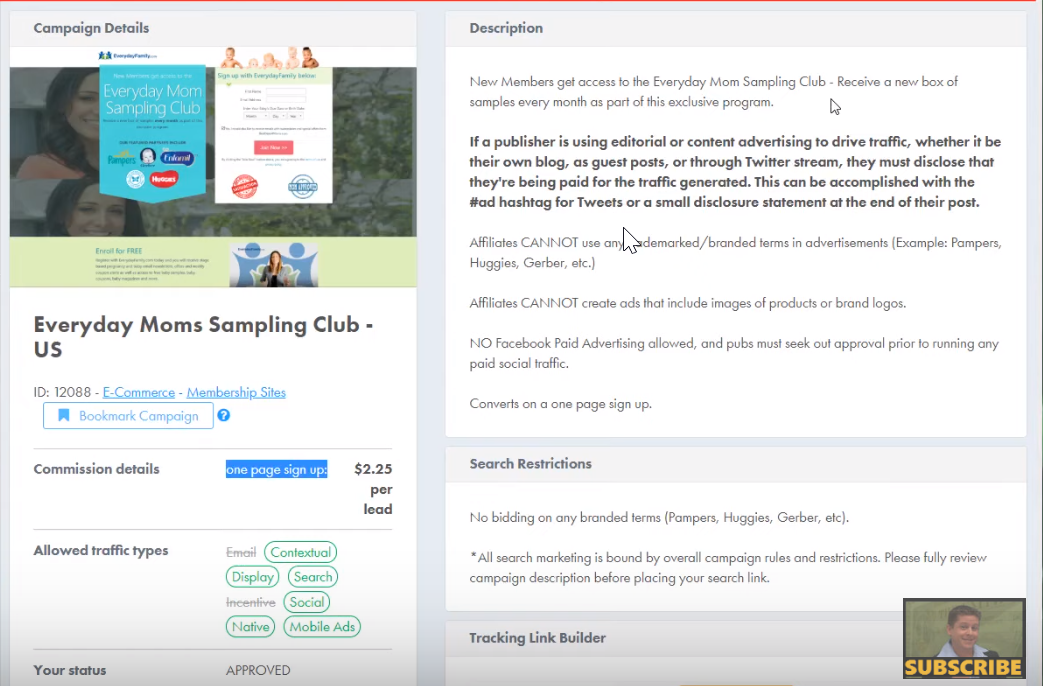
There may be other instructions that you have to follow as well. For example, for many offers, if you’re using editorial or content advertising in order to drive traffic, you have to disclose that you’re being paid for the traffic. You need an affiliate disclaimer.
You also usually can’t use any trademarked or branding terms in your advertisements. That means you can’t use the names, and you also can’t include images of branded products.
There are some well-known places where you can find offers to promote. Some examples are:
- Amazon
- Commission Junction
- ClickBank
- MaxBounty
- Linkshare / Rakuten
- Globalwide
- A direct company
When looking for affiliate offers, I usually recommend OfferVault. This is not an affiliate network, but rather a search engine where you can find a bunch of affiliate networks.
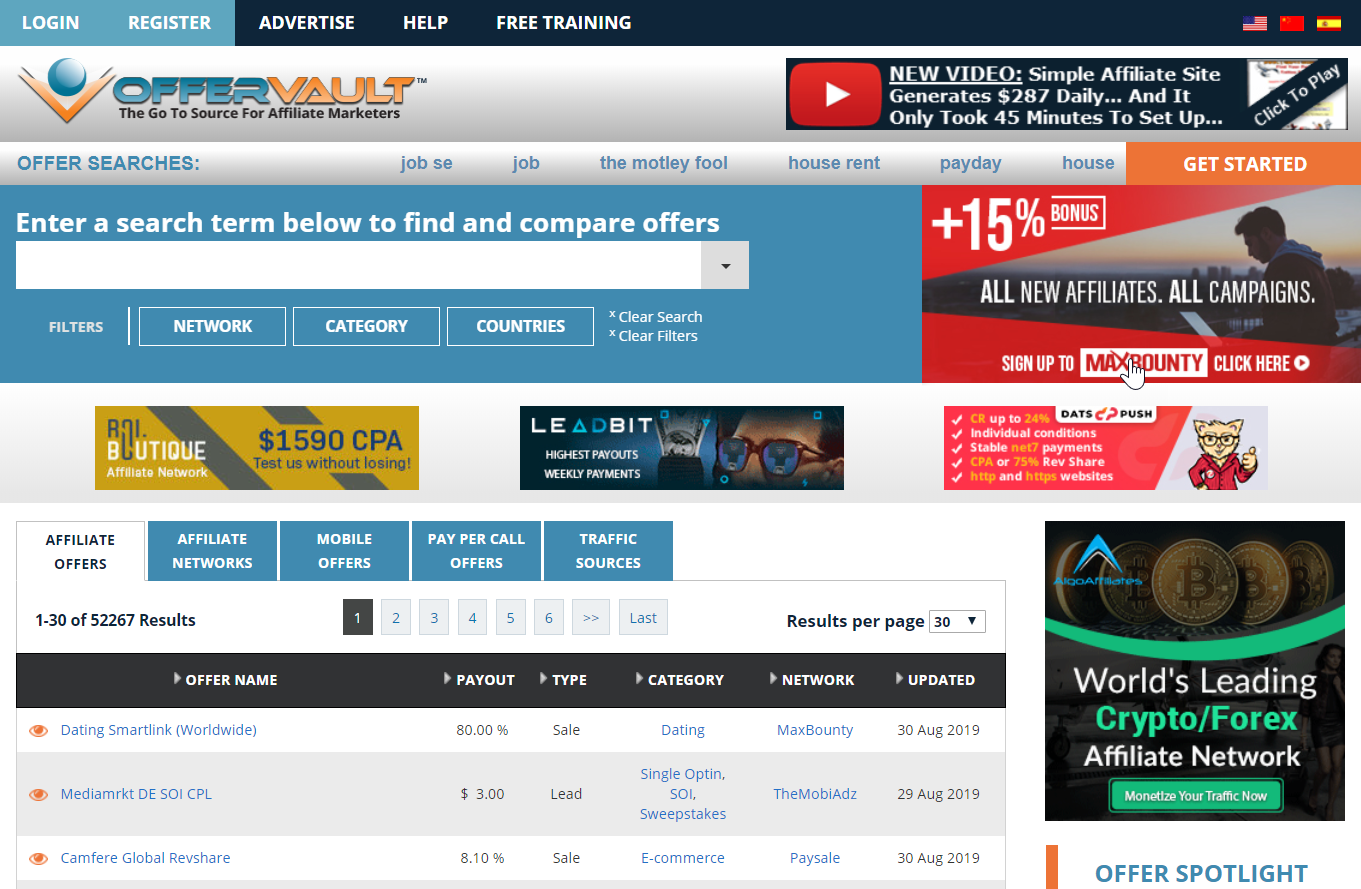
So you can search theme to look for all different kinds of products, and then you can join with the networks whose products you want to promote.
Main Overview Terms
Now, we’re going to do some overview of terms related to affiliate marketing.
- Affiliate link
- Affiliate program
- Click-through
- Click-through rate
- Commission
- Cookies
- CPA
- CPC
- CPL
- CPM
- CPS
- Creative
- Disclaimer
- Direct linking
- EPC
- Email marketing
- Impression
- Incentivized traffic
- Landing page
- Lead capture page
- Manual approval
- Offer
- Opt in email
- Pixel
- Pre-poulate
- Pre-sale page
- Raw click
- Redirection
- Return on investment
- Sub ID
- Splash page
- Tracking ID
- Text link
- Tracking software
- Traffic
- Unique click
Affiliate link: A link used by an affiliate, provided by a company or affiliate network
Affiliate program: A program where a company pays affiliates to generate sales, leads, downloads, clicks, etc.
Click-through: Where you have your tracking link; how many times people click
Click-through rate: Taking clicks and putting them over impressions; how many times your ad was shown versus how many times it was clicked
Commission: The amount you are paid for the conversion
Cookies: The code placed on a computer when an affiliate link is clicked
CPA: Cost per acquisition, or cost per action
CPC: Cost per click; the amount that a click costs you
CPL: Cost per lead; how much you’re making per lead
CPM: Cost per 1,000 impressions
CPS: Cost per sale; how much it’s costing per sale
Creative: What you’re using to show the ad; whatever is created to promote the offer
Disclaimer: Warning to the customer; you usually need to have an affiliate disclaimer and a claim disclaimer
Direct link: Using a big, ugly tracking link to send people directly to an offer
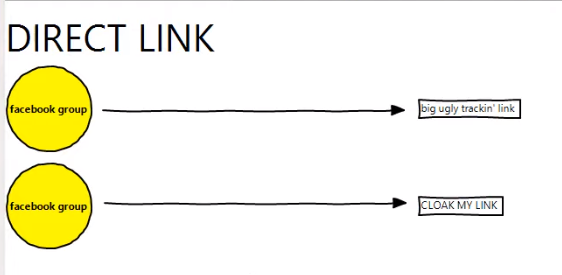
Earnings per click: The amount you earn per click
Email marketing: Sending offers to people through email

Impression: How many times your ad shows on a website
Incentivized traffic: Placing an incentive for a person to do the desired action
Landing page: The page that your traffic lands on from the traffic source.
Lead capture page: Instead of sending people to offers directly, you use this page to build a mailing list
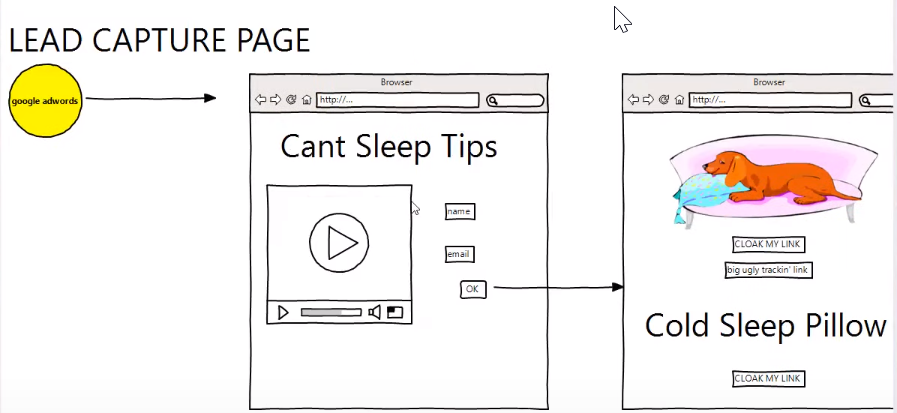
Manual approval: Requesting approval manually to join a network or program, instead of automatically getting approved
Offer: The promotion that you’re running
Opt in email: The email address of someone who puts their name and email in a box
Pixel: A little thing on the site that drops a cookie on your computer; also called a tracking pixel
Pre-populate: Sending people to an offer with their name and email already in the opt in box
Pre-sale page: A page that provides a solution and shows people why they need to buy a product, then has a cloaked link to send people to the offer
Raw click: Someone who clicks on your raw affiliate link
Redirection: When you redirect someone from a site to another site with your offer; same as cloaking a link
Return on investment: The amount of money you’re making versus the amount you pay
Sub ID: Something you put on the end of your affiliate link; also known as a tracking ID
Splash page: A website where you send people, instead of direct linking
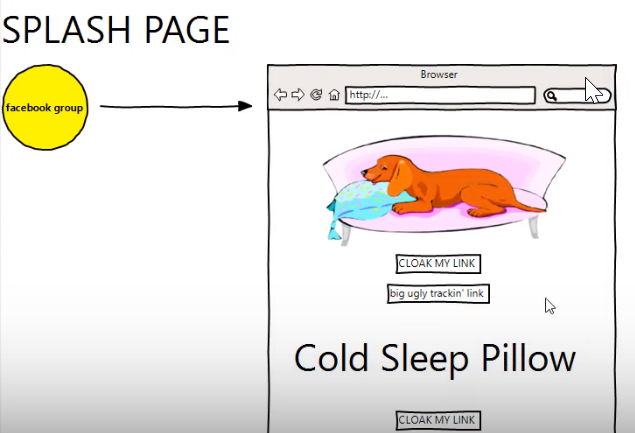
Tracking ID: Allows companies to know that the action came from your link
Text link: Link created only using text
Tracking software: Software the affiliate company uses to track everything
Traffic: How you get people to your site
Unique clicks: Each click gets registered uniquely, individually











